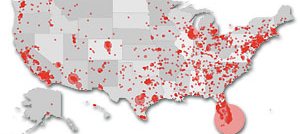WPF Discussing New Research in FTC Senior ID Theft Workshop
Senior Identity Theft - FTC -- WPF Executive Director Pam Dixon will be speaking at the Federal Trade Commission Tuesday on the issue of Senior ID theft, and specifically, about medical forms of the crime. Dixon, who wrote the first report on medical ID theft and coined the term for the crime, will be presenting new research at the panel.



